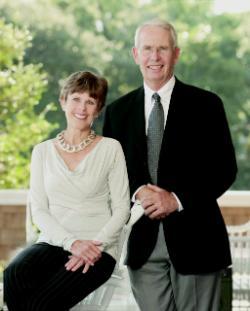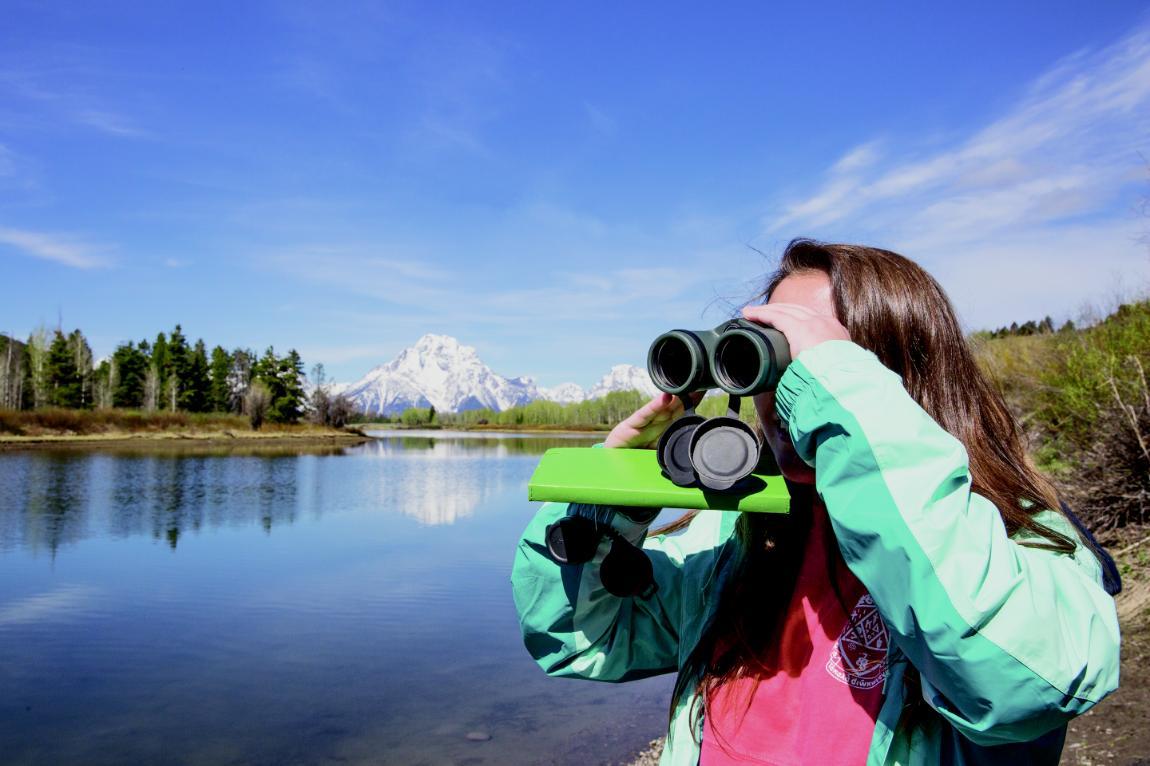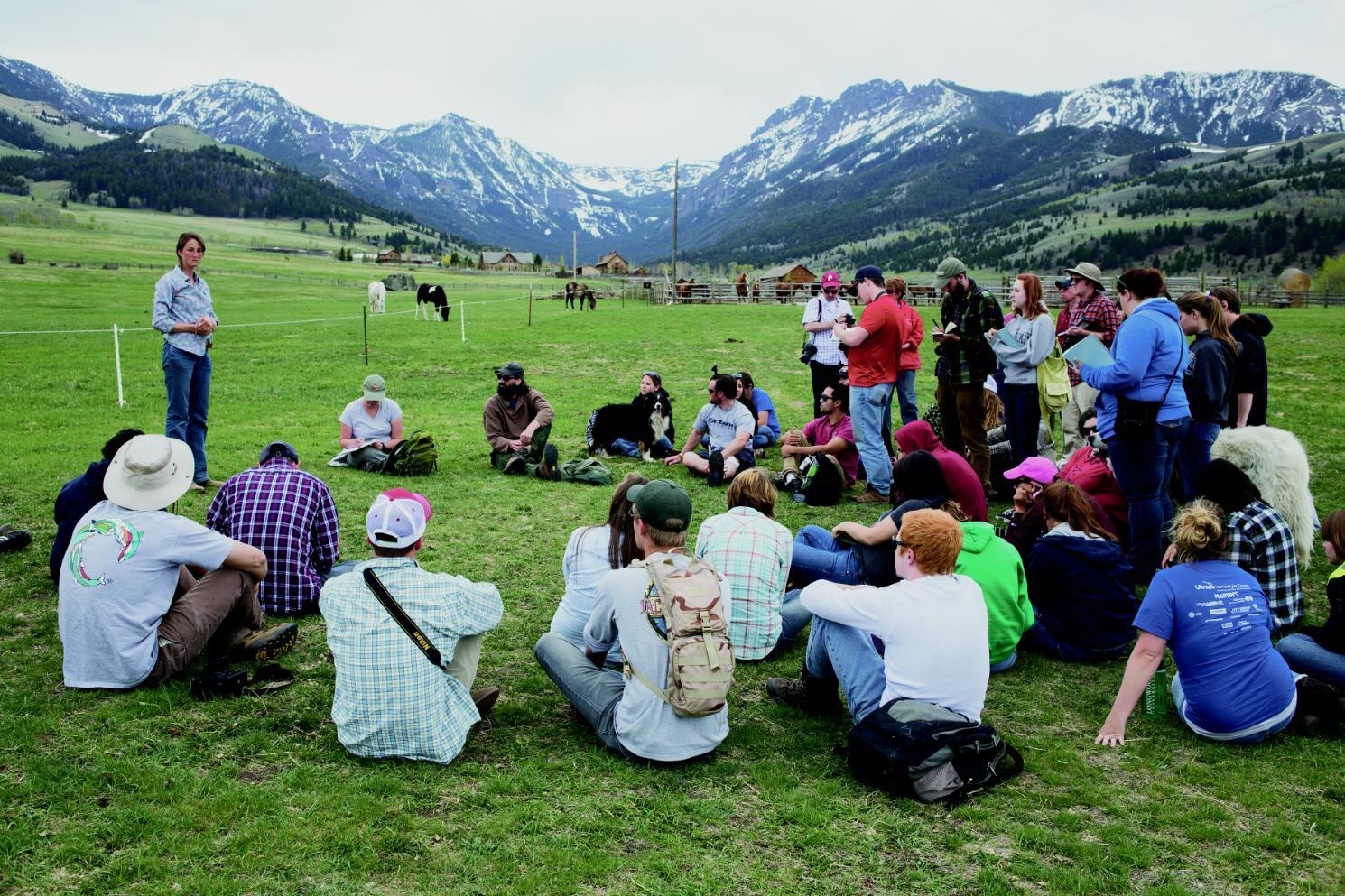As Longwood moves forward with a new core curriculum, the university also has received an extraordinary boost from the largest gift in its history: $5.9 million from Joan ’64 and Macon Brock, to create the Brock Endowment for Transformational Learning.

The Brocks, acclaimed philanthropic and business leaders and dedicated Longwood supporters, have always been impressed by Longwood’s commitment to its citizen leadership mission, and by the close ties that develop among Longwood students and faculty mentors. Longwood’s environmental sciences program at Yellowstone National Park caught their eye as a place where those strengths were powerfully visible.
Now, thanks to the Brocks’ gift, Longwood faculty from disciplines across the university will begin developing more such programs at other sites across the United States. An experience that today is enjoyed by a few dozen students each year could someday be an unforgettable part of the education of many, if not most, Longwood undergraduates.
Many of these Brock Experiences also will fit hand-in-glove with the goals of the new core curriculum, approved in December by the Board of Visitors. The programs share many of the same goals: connecting students to Longwood’s mission, providing hands-on lessons in civic issues and leadership, pushing students to make connections and solve problems across disciplines, and exposing them to new ideas and experiences that tie together their learning in Longwood’s classrooms and beyond.
The Brock Experience will be a signature program that sets Longwood apart. Many other schools offer travel courses, but none with the interdisciplinary focus or transformational goal at its heart.
What will future Brock Experiences look like? Options are limitless, with ideas to come from faculty for how to take students beyond the walls of campus and apply their disciplines in fresh and exciting ways to real-world civic challenges. Programs could take place in other national parks, but also in a variety of settings ranging from wilderness to urban areas, and in places of, for example, historical, scientific or artistic importance.
Josh Blakely, who in his previous role as assistant dean of students traveled several times to Yellowstone, has been tapped to work with faculty to help coordinate the development of new programs like Longwood@Yellowstone, as the program is known, and a similar program developed more recently in Alaska.
“The Yellowstone program takes students out of their comfort zones, and that’s where the transformation happens,” he said. “Being outside the classroom in a totally new environment immediately broadens your perspective, but the real shift happens when students start applying the concepts they learned in the classroom to real-world problems. That’s when they start thinking like citizen leaders.”
A team of administrators and faculty members will consider proposals and select two Macon F. and Joan Perry Brock Fellows this spring, and a two-year development period will begin. Two more faculty Brock Fellows will be selected in spring 2018 to develop new courses, and the process will repeat.
I have always felt so deeply proud of Longwood for taking on the serious work of preparing students for lives of citizen leadership.’
Joan Brock ’64

“I have always felt so deeply proud of Longwood for taking on the serious work of preparing students for lives of citizen leadership,” said Joan Brock. “This is truly what sets Longwood apart, and it is what the world needs. In talking with President Reveley in recent months about how we could make a real difference, this idea took shape. Macon and I firmly believe that in the years and decades to come, students will be drawn to Longwood by the opportunity to have the types of experiences this program will create, and those experiences will have a profound impact on them.”
Bobby Rae Allen ’17 is among the Longwood students who can already speak to the impact of such experiences. An environmental sciences major from Reston, Allen went to Yellowstone in 2015. He had entered Longwood in the kinesiology department, but switched majors the spring semester of his sophomore year because he loved the outdoors. The Yellowstone program, under the leadership of Cormier Honors College Dean Alix Fink, convinced him he made the right decision.
“We confronted a range of societal and environmental issues out there that I had never thought of before,” he said. “When you are out there, working in groups to tackle a particular issue, time goes by so quickly. But when I returned to Longwood and started working on the issues we were studying, it all started to make sense in a new way.”
Allen, who plans to work in watershed management when he graduates this spring, said his Yellowstone experience not only reinforced the work he’s done in Longwood’s classrooms but also will give him an advantage as he enters his career.
“I’m in a class now called Environmental Planning and Management, and the things we are studying are things we did at Yellowstone,” he said. “We also talk a lot about stakeholder involvement in decision making and environmental management, and that’s almost entirely what we did at the park: talk to stakeholders and try to understand issues completely. That trip really is the embodiment of everything I want to do with my life.”
It’s just that kind of experience that the Brocks hope their endowment will replicate for generations of Longwood students.
“I had a wonderful experience as a student at Longwood, and it has been so exciting to watch the university thrive,” said Joan Brock, whose gifts with her husband, Macon, to the university include the naming gift for the Brock Commons corridor through central campus. Longwood’s new student success building, which is located on Brock Commons and is set for completion in 2017, will carry the name Brock Hall in their honor.
“We have seen what happens to students on Longwood’s Yellowstone National Park and Alaska programs, and it is exciting to think of so many more in the years ahead who will have new experiences along those lines. We are eager to see what wonderful ideas emerge from the faculty and come to fruition.”



Leave a Comment